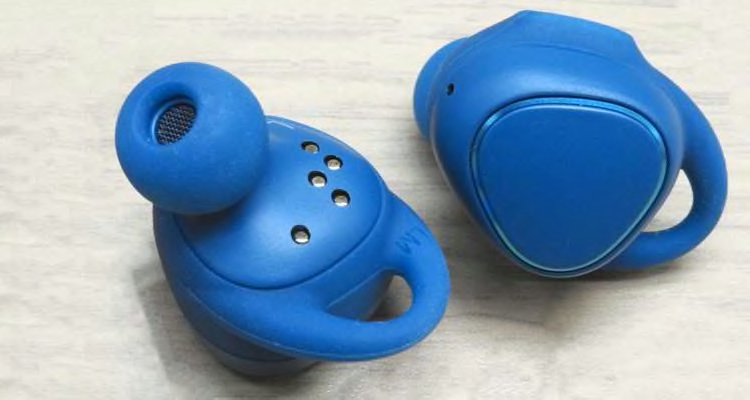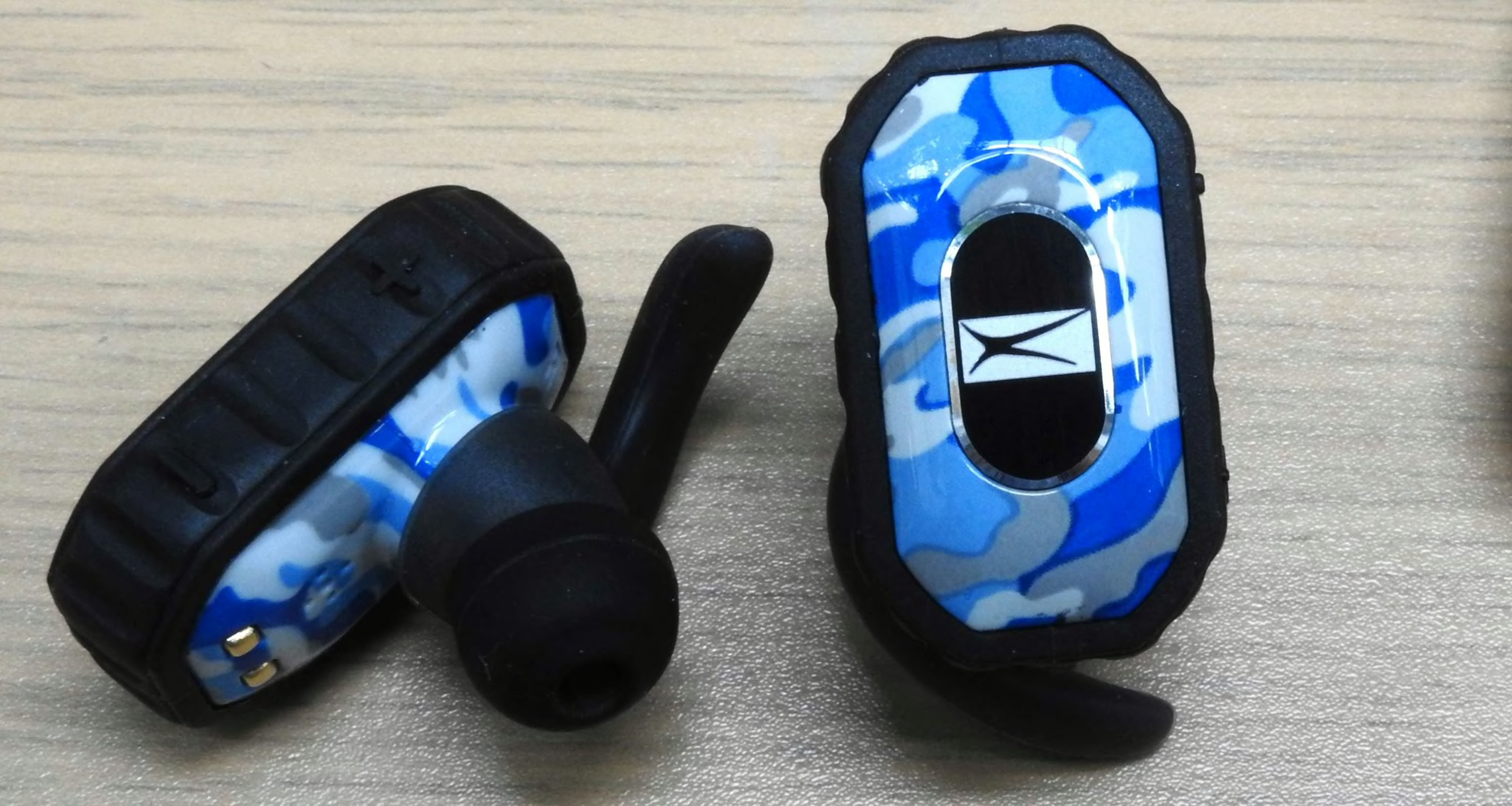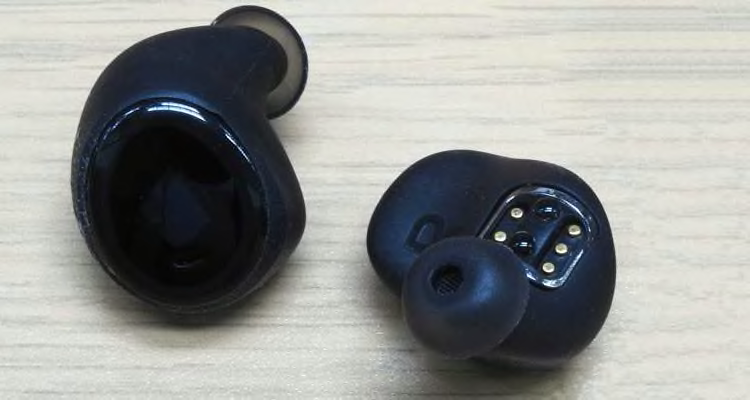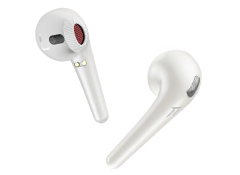A new breed of headphones hit the market this year. Truly wireless—as in, not so much as a thread links them—these buds fit into your ears like a pair of individual earplugs. We're talking total freedom from cords that inevitably snag on buttons, backpacks, and purse straps. Though the concept of truly wireless earbuds is filled with promise, it's not quite ready for prime time, particularly when it comes to sound quality.
We haven't yet tested the much-ballyhooed Apple AirPods because they haven't reached stores. But our testers have evaluated models from Samsung, Altec Lansing, and Bragi, and they've uncovered performance problems.
The $200 Samsung Gear IconX (shown at left in photo above) offered very good sound quality, but the music occasionally slipped out of sync between the two earphones. The volume level drifted out of balance as well.
And those fluctuations in volume were even more pronounced in the $150 Altec Lansing Freedom True Wireless Earbuds (shown at right in photo above). In fact, in some cases the sound in the right earphone disappeared completely. Even more troublesome, we detected a faint whining and ticking noise in the background.
The $300 Bragi Dash (shown at center in photo above) delivered good sound, although we did notice some hiss. But the touch commands—which allow you to control playback functions with the tap of a finger—were inconsistent. Sometimes the earbuds didn't respond to the commands. At other times they malfunctioned, quickly cycling among play, pause, and rewind unprompted.

"The models we've tested so far are in various ways a step backward in performance or ergonomics compared to the typical Bluetooth wireless headphone," says Maria Rerecich, director of electronics testing at Consumer Reports. "These are problems the manufacturers need to address."
Keep in mind that this is a new direction for headphones. At the moment, the industry hasn't even settled on a name for the product. They've been called "truly wireless earbuds" and "completely wireless in-ear headphones," but they're being targeted toward those who love to listen to audio while on the move. Some models are even waterproof, which means you can wear them while swimming.

How We Tested
Because they're meant to be worn while engaging in exercise, we tested how well the three models in our labs stayed in place. For the most part, they worked quite well. The Samsung and Altec Lansing fit securely, and the ear bowl supports made the fit quite stable, even during vigorous head movements.
The Bragi Dash felt less secure, but they never shook loose, despite the vigorous head movements. Still, our testers did need to fiddle with them a bit to get the proper seal in their ear canals.
Because Bragi claims the Dash earbuds are also waterproof, we had our testers take them for a swim. Once again, the Dash stayed in place and kept the water from entering their ears.
All three models come with a protective case that doubles as a charging station via a USB connection to a computer. And each has an isolating design that makes it useful for those who want to shield themselves from some outside noise while also keeping the sound in their earpieces from disturbing others.
Truly wireless headphones hold a lot of promise, including built-in fitness tracking and GPS features that would make them even more appealing. If Apple, Samsung, and other manufacturers can hammer out the bugs, headphones with absolutely no wires could become very popular. But we're not ready to recommend them.
Check back in the weeks ahead to see how Apple AirPods perform in our tests.




















